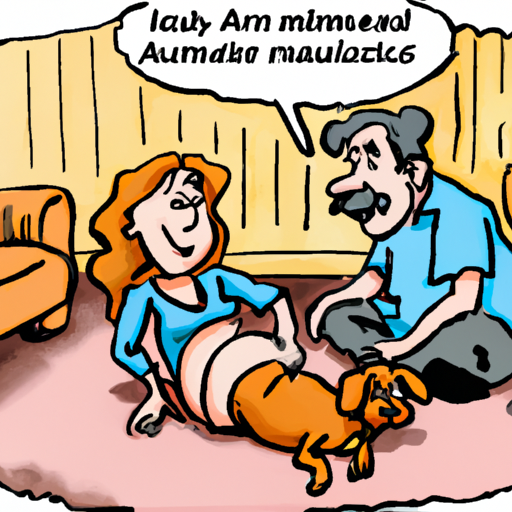Understanding Canine Bloating
Bloating in dogs, medically known as Gastric Dilatation-Volvulus (GDV), is a serious condition that can potentially be fatal if not promptly addressed. It occurs when your dog’s stomach fills with gas and possibly twists, causing discomfort and distress.
Factors that may contribute to bloating include:
- Rapid eating
- Only having one meal a day
- Heavy exercise after eating
- Older age
- Belonging to a large or giant breed
Signs Your Dog Might Be Bloated
You know your pet better than anyone. The following signs could indicate that your dog is experiencing bloating:
- Swollen abdomen
- Restlessness or pacing
- Trying to vomit but nothing comes out
- Shortness of breath
- Excessive drooling
- Pale gums
- Rapid heartbeat
The Danger of Canine Bloating
Remember, bloating in dogs is a serious condition that requires immediate medical attention. If your dog’s stomach twists, it can cut off the blood supply to their stomach and other organs. This can send your dog into shock and potentially lead to death if not treated quickly.
Preventing Bloating in Dogs
While bloating can be life-threatening, there are measures you can take to prevent it:
- Feed your dog smaller meals throughout the day instead of one large meal
- Avoid vigorous exercise immediately after meals
- Incorporate probiotics into their diet
- Regular vet check-ups
Treatments for Bloating
If you suspect your dog has bloating, take them to the vet immediately. Treatment often involves a two-step process:
- Stabilizing the dog to address shock
- Surgery to deflate the stomach and possibly untwist it
| Treatment Step | Description |
|---|---|
| Stabilization | Administering fluids and oxygen to combat shock |
| Surgery | Removing gas and fluids, checking for damage to organs |
FAQ
Q: Are certain breeds more prone to bloating?
A: Yes, large and giant breeds like Great Danes, German Shepherds, and Boxers are more prone to bloating.
Q: Can small dogs get bloating?
A: While it’s rare, small dogs can also experience bloating.
Q: How quickly should I react if I think my dog is bloated?
A: Immediate action is critical. Bloating can be fatal, so if you suspect bloating, contact a vet immediately.
Q: Can diet affect bloating?
A: Yes, a dog’s diet can influence the likelihood of bloating. Feeding your dog smaller, more frequent meals can help prevent bloating.
Q: Is bloating painful for dogs?
A: Yes, bloating can cause significant discomfort and distress for your dog.
Remember, you are your pet’s primary caregiver and best advocate. Being informed about conditions like bloating can help you ensure a long, happy, and healthy life for your furry friend.



